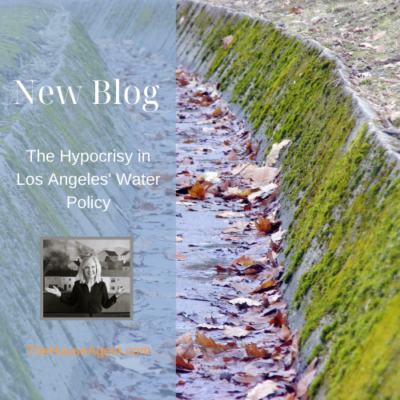 Since 2017, the Crescenta Valley Water District, which serves 35,000 residents in the neighborhoods between Glendale and La Cañada-Flintridge, has been working on a project to capture rainwater from the Verdugo Wash. This captured water would recharge local groundwater supplies, providing about one-sixth of the district’s total water needs. Such stormwater capture and groundwater recharge initiatives are central to California’s new State Water Plan, supported by Governor Gavin Newsom, the California Department of Water Resources, and Los Angeles County.
Since 2017, the Crescenta Valley Water District, which serves 35,000 residents in the neighborhoods between Glendale and La Cañada-Flintridge, has been working on a project to capture rainwater from the Verdugo Wash. This captured water would recharge local groundwater supplies, providing about one-sixth of the district’s total water needs. Such stormwater capture and groundwater recharge initiatives are central to California’s new State Water Plan, supported by Governor Gavin Newsom, the California Department of Water Resources, and Los Angeles County.
However, despite widespread support, the LADWP has been a notable obstacle. Although Los Angeles publicly champions its stormwater capture goals under its “Green New Deal” and aims for “zero wasted water” by 2050, it has blocked Crescenta Valley’s project. The LADWP cites a 1970s court decision claiming that all water entering the L.A. River, including that from Verdugo Wash, belongs to Los Angeles. Ironically, while the LADWP allows this water to flow into the ocean, it refuses to permit Crescenta Valley to capture it for local use.
Instead of facilitating a project aligned with California’s broader water conservation goals, LADWP insists that Crescenta Valley replace any captured water by purchasing it from other sources, such as the Metropolitan Water District. This requirement essentially forces the small district to draw from the already stressed Colorado River, undermining the very sustainability the state advocates.
The LADWP’s stance reveals a deep hypocrisy. While it promotes self-sufficiency and environmental responsibility, it simultaneously hinders smaller agencies from implementing practical, local solutions. This inconsistency is further highlighted by LADWP’s efforts to increase water extraction from the Owens Valley, a move that has drawn criticism from environmentalists statewide.
James Lee, general manager of Crescenta Valley Water District, underscores the frustration, pointing out that the technology for stormwater capture is neither new nor complex. The real obstacle is outdated water policies that no longer reflect the realities of California’s water needs.
In summary, while Los Angeles publicly commits to ambitious water conservation goals, its actions—particularly in blocking the Verdugo Wash project—betray resistance to the change it claims to support. This contradiction highlights the urgent need for policy reform that matches the rhetoric of sustainability with real-world action.
🌐 Sources

